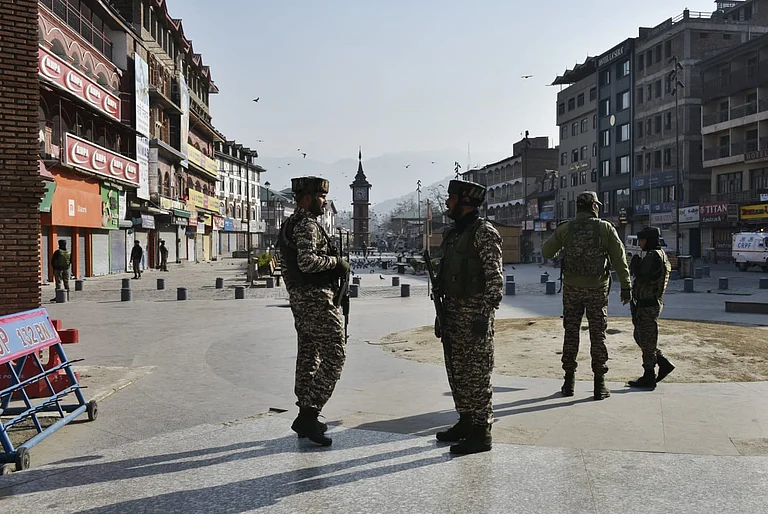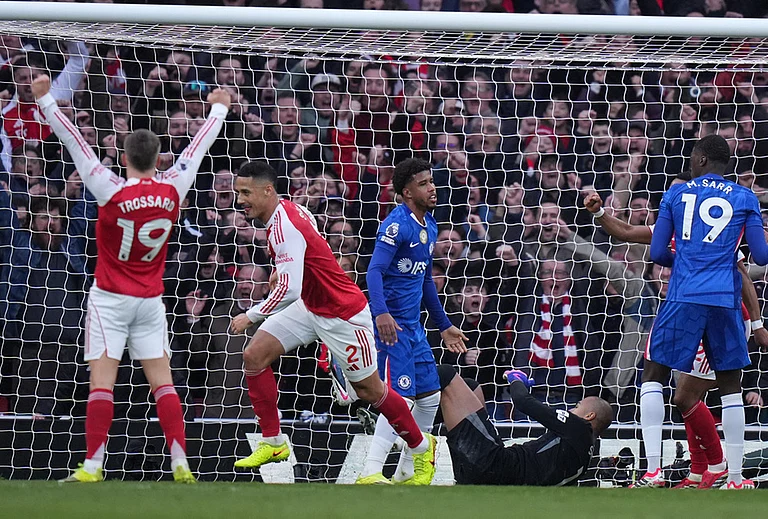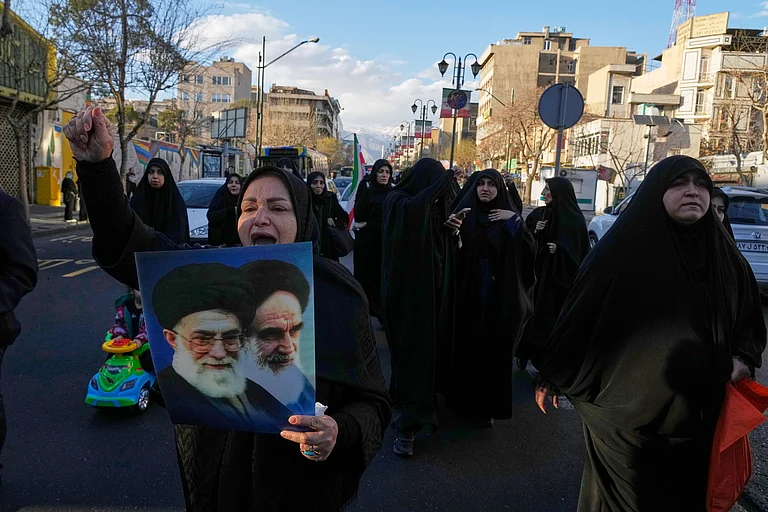Opposite the Central Bank building, Reuters photographer Anurudha Lokkuha-puarachchi grabbed his camera bag and dashed to the lift. Since the lift was held up he took the stairs to come two floors down. That was when he heard a massive explosion. He also heard the lift crashing down to the basement. The Liberation Tigers of Tamil Eelam (LTTE) had bombed the heart of the country's business centre.
The initial attack was a diversion for the bomb blast. While the gunmen kept the bank and security personnel at bay, a lorry packed with explosives tried to ram into the Central Bank building but was stopped by the crash barrier put in place for just such an eventuality. The driver ignited the bomb which destroyed seven multistoreyed offices, setting fire to five of them. The main lobby of the Central Bank took the full blast of the explosion. Eighteen of the 20-member staff in the bank's library next to the lobby were killed instantaneously. Hundreds were injured and dozens buried in the debris. The explosion took its toll on surrounding buildings as well. Forty-eight hours after the explosion,74 were killed and at least 1400 people injured, 150 critically. The LTTE had timed the attack to cause maximum damage.
For weeks, intelligence agencies had been warning of a possible rebel attack on the city but when it came, the sheer intensity of it took everyone by surprise.
The attack had been planned meticulously. The explosives-packed lorry arrived in Colombo on January 30 from the northern town of Vavuniya. The ammunition was hidden under paddy husk. Three youths, two of them from the rebel stronghold of Jaffna, and the driver, who was the suicide bomber, came from the northern mainland town of Kilinochchi. Hours after the blast, an alert civilian became suspicious of two men walking briskly towards the central railway station a mile away from the explosion. They turned out to be the two gunmen at the blast site. Soon after their arrest, the police pieced together the sequence of events from their confessions.
As the security forces began clearing the debris to search for the bodies, the destruction of the nerve centre of the banking system sent shock waves through the business community. The Central Bank Governor A.S. Jayawardene, who escaped the blast, moved quickly to restore confidence. The bank's headquarters was shifted to its training centre on the outskirts of Colombo. After a series of meetings with top private and public bank executives, the governor hurriedly convened a news conference to announce that "operations of the bank would be brought back to normal within a week".
"I have discussed relevant issues with the banks. There is no immediate liquidity crisis. The Central Bank has currency stored in vaults of the two state banks. The two state banks also have large reserves," the governor said. The Central Bank clears about 150,000 cheques a day, totalling Rs 5 billion. The governor's statement notwithstanding, the blast at the bank will have long-term repercussions on the economy. As a foreign investment adviser put it, "The attack will obviously have a negative impact on foreign investment which is crucial for the government's privatisation plan." Not to talk of the effect it would have on the impending World Cup as Australia threatened to pull out of the matches in Sri Lanka.
The other sector that will be hampered is the tourist industry which is the country's third largest foreign exchange earner. Although no foreigner was killed in the incident, several received minor injuries and the explosion damaged two five-star hotels.
However, no one had any doubt about the real intentions behind the blast—to derail the peace package announced by President Chandrika Bandaranaike Kumaratunga and to divert the military from plans to launch another offensive in Jaffna. The detailed package was announced in January and is to be presented to the parliamentary select committee which is formulating a new constitution this month. With public debate in full swing on the pros and cons of the autonomy package, the government quickly initiated damage-control measures.
"The LTTE has resorted to this act of desperation at a time when the group has suffered major military setbacks at the hands of the Sri Lankan security forces, and the government's political proposals to resolve the ethnic problem have received the acceptance of the majority of the Tamil people as well as that of the Sinhala and Muslim people. Their action is clearly intended to derail this process by provoking our people to cause harassment to innocent Tamil citizens and cause damage to the country's economic assets," President Kumaratunga declared on national television and radio. Earlier, the powerful Deputy Minister of Defence, Colonel Anurudha Ratwatte, had announced on television that the military campaign to defeat the rebels was on track. "These types of attacks cannot be eliminated. We can only make it difficult for the Tigers by being vigilant. However, such barbaric attacks will not divert us from our aim of defeating terrorism. It will only strengthen our resolve," the minister declared.
The military had launched a massive onslaught on Jaffna peninsula last October and after 49 days of bitter fighting captured the rebel heartland. "The problem for the military is that despite its success the rebel leadership and its arsenal is still intact," a military analyst said. The mainstream moderate Tamil parties have condemned the attack and have stressed on continuing the peace process to find a solution to the ethnic crisis.
The LTTE has carried out several attacks in Colombo since the peace talks collapsed on April 19, 1995. Rebel gunmen attacked the main oil storage depot on October 20, 1995, killing 23 soldiers and three rebels. In November, two Tamil rebel suicide bombers set off bombs outside the army quarters in Colombo. Twelve civilians died. The rebels have carried out a number of bomb explosions and assassinations in Colombo in the 13-year-old war.
The deputy minister for defence, General Ramjan Vijayaratne, was assassinated in February 1991 and naval commander Rear Admiral Clansy Fernando was killed the next year. President Ranasinghe Premadasa died during a May Day rally in 1993. The Opposition leader and presidential candidate Gamini Dissanayake was killed in November 1994 when he was campaigning for the election. The last major rebel bomb attack was on the joint operations command headquarters in 1992.
Despite doing its best to sound optimistic, the government is finding it exceedingly difficult to convince the people that the devolution package would solve the bloody ethnic war which has killed 50,000 people.

























